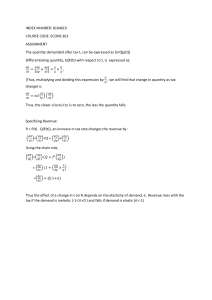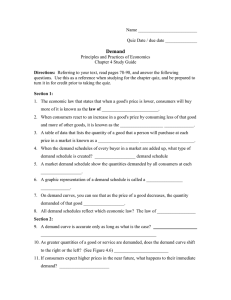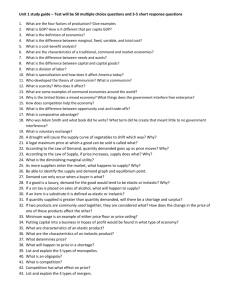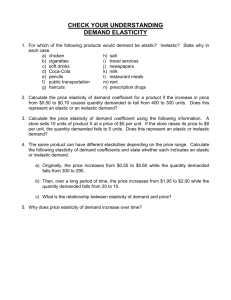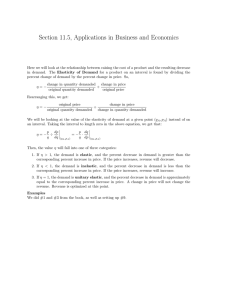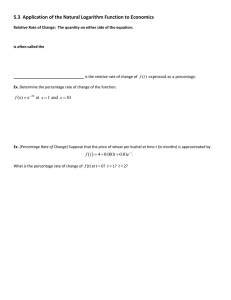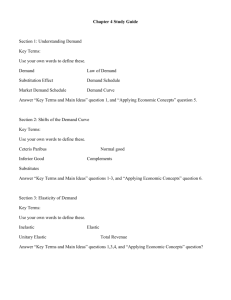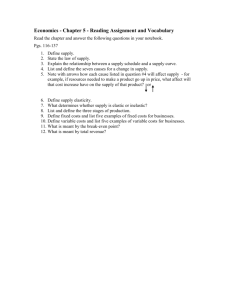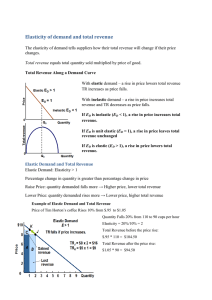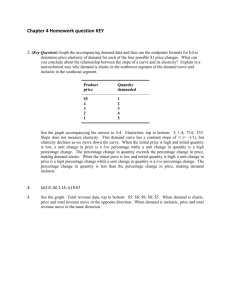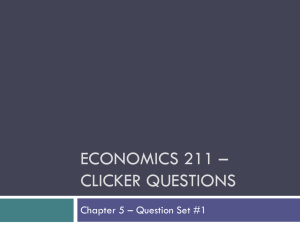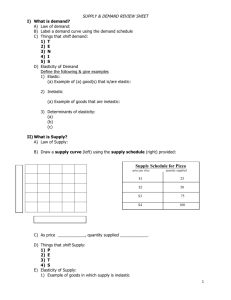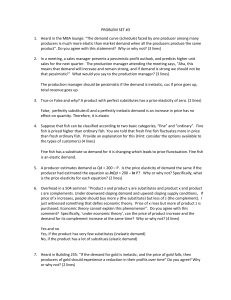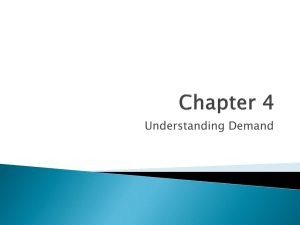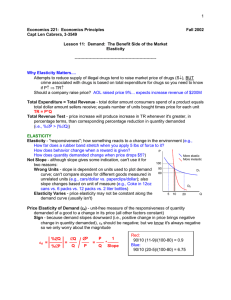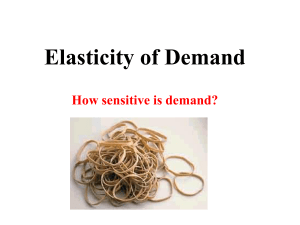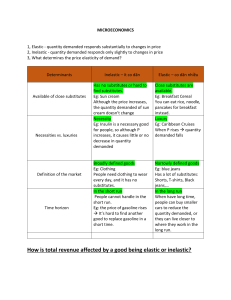Demand
advertisement
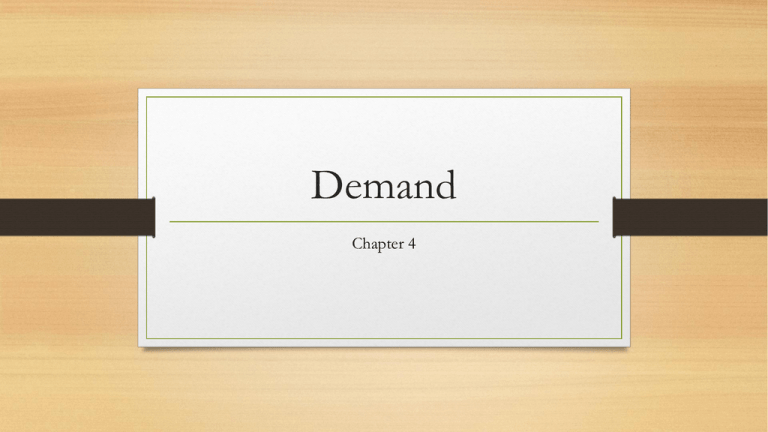
Demand Chapter 4 Demand • Demand – the desire to have a good or service and the ability to pay for it • Law of demand – states that when the price of a good or service falls, consumers buy more of it • Demand schedule – table that shows how much of a good or service a consumer is willing and able to purchase at each price (see page 100) • Market demand schedule – shows quantity demanded by all people at certain prices Demand Curve • Graph that shows how much of a good or service an individual is willing to buy at each price • Market demand curve – data in market demand schedule Activity • Work together on market demand schedule for pizza • Each person in the group (no more than 3 per group) will fill in how much they are willing to pay for pizza at each given price. • Person 1 fills in Day 1; person 2 fills in Day 2, etc. • Total number of slices sold at each price will help determine market demand Vera Wang: Designer in Demand • Rad page 104 and answer questions • How did Vera Wang respond to consumer demand? • How did she create or generate consumer demand? What Factors Affect Demand? • Law of diminishing marginal utility – when marginal benefit from using additional unit of good tends to decline as used. • Change in quantity demanded – change in amount consumers will buy, causes change in price • Change in demand – occurs when a change in the marketplace changes consumer behavior (unemployment, etc) • There are several factors that affect demand What Factors Affect Demand? • Class is broken into 6 groups, each will explain how these factors impact the demand • • • • • • for designer jeans: Group 1 Income Group 2 Consumer Tastes Group 3 Consumer Expectations Group 4 Market Size Group 5 Substitutes Group 6 Complements Inferior v. Normal goods • Normal goods – consumers demand more of these when their income level rises (high price or high quality, expensive goods) • Inferior goods – consumers demand less of these when their income rises (discount jeans, cheap food) Elasticity of Demand • Elasticity of demand – how responsive consumers are to price changes • Elastic – larger change in quantity demanded and price • Inelastic – when change in price leads to small change in quantity demanded • Can you think of anything that is INELASTIC? What impacts elasticity? • Substitute goods or services – is there something else that will fulfill need/want? • Proportion of income – the amount of your income that goes to pay for something may cause it to be elastic/inelastic. The bigger portion of your income, the more likely you will change habits if price increases. • Necessity v. Luxury – is it something you NEED or WANT? • Review chart on page 120, what items are “inelastic”? Total Revenue Test • Total revenue – the amount of money a company receives for selling its products. (Price x. Quantity) • Total revenue test • If revenue increases after the price drops, demand is elastic (seller makes less per unit, but demand increased enough to allow them to make more money) • If revenue decreases after the price is lowered, demand is inelastic (seller makes less money because demand didn’t increase enough)
